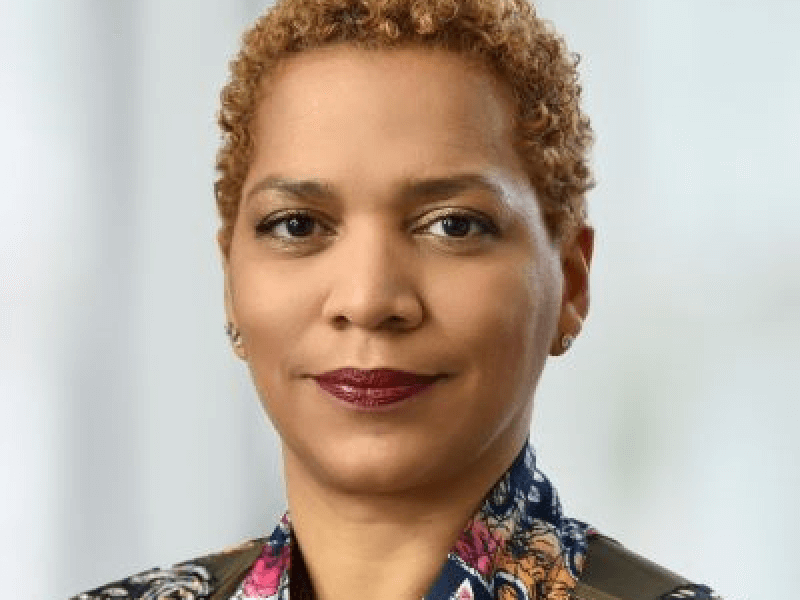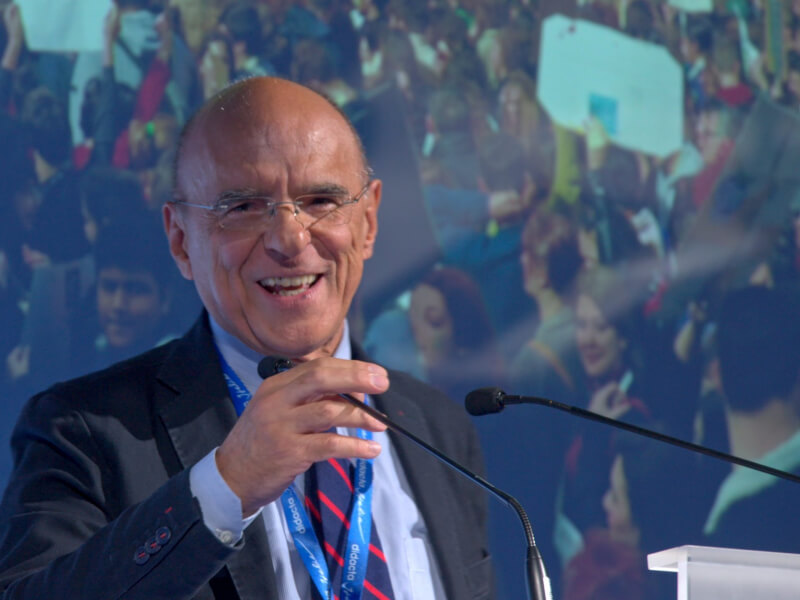22 March 2024 – In our Q&A series with the authors of Limits and Beyond, we talked to Ndidi Nnoli-Edozien, a member of The Club of Rome and the International Sustainability Standards Board (ISSB) at the IFRS Foundation. We explored the Seven Pillars approach and the concept of Solidarity Capitalism, and discussed how the integration of indigenous knowledge systems can help us to develop a more holistic and sustainable economic future.
The focus of your chapter is the concept of Solidarity Capitalism. Can you explain what that means?
In the previous understanding of capitalism, the point of a business’s existence was the pursuit of profits. We have taken a significant shift in consciousness since then, with many people moving towards a belief that the value of a corporate entity is also inextricably linked to its ability to create value for its stakeholders, society, the economy and the natural environment. My reference to Solidarity Capitalism in the chapter was a way of bringing that consciousness and that awareness to the fore. I also wanted to specifically reference indigenous knowledge systems and connect them to prevalent economic systems like capitalism to find a blend that creates a more holistic and sustainable future.
Can you expand on what indigenous knowledge systems can teach us about creating a sustainable economy?
The thinking that I am describing is not new. These approaches and intuitive knowledge have always been embedded in the cultural heritage of many African jurisdictions, kingdoms, and concepts like Ubuntu or Umunne/a. For example, the way the Igbo describe culture— “Omenala” and “Omanani”— references “Ala” and “Ani”, meaning the Earth. There is an understanding that the Earth is a core stakeholder in how we should live, how we should think and how we should do business. A lot of African culture has been oral tradition, not necessarily captured in writing. When talking about Solidarity Capitalism in my chapter, I wanted to capture the elements of this holistic thinking that is inherent in where I come from.
How can we imagine putting these ideas into practice?
A practical approach that I’ve used in my previous work is the Seven Pillars to Sustainability, which has been used by several large corporations in Africa, such as the Growing Businesses Foundation, Dangote, and MTN. The Seven Pillars approach views sustainability holistically from a financial, operational, institutional, economic, social and environmental perspective. The governance, or the board, establishes the tone at the top of the organisation. Through that tone, the entire organisation with all of its different facets, departments, and data owners come together to define what sustainability for that entity means, how to measure it, how to monitor it, how to report it, and more importantly, how it helps define its culture and purpose.
You are currently a member of the International Sustainability Standards Board (ISSB) at the IFRS Foundation. Can you talk about how the ISSB relates to the concept of Solidarity Capitalism?
At the ISSB we are trying to create one common language of sustainability-related disclosures that are geared towards investors, so they can get the necessary information that allows them to consider sustainability and climate-related risks as part of decision-making. By enabling these disclosures, we are able to put together the appropriate indicators that allow investors to channel capital towards more sustainable businesses. This takes us closer to the concept of Solidarity Capitalism where we are all working together to build a healthy ecosystem where everyone can thrive.
How has your work at The Club of Rome supported this transformation?
My journey with The Club of Rome started about 20 years ago and I was on the Executive Committee for the last three years. On the committee, we were constantly questioning the thinking that underlies our thinking to make sure that we are not trapped in a specific mindset and that we are opening up our possibilities by considering what could be derived from cultural best practices, intergenerational and cultural perspectives. We have achieved many things during this time, such as establishing The 50 Percent to help intergenerational dialogue come alive, publishing Towards New Narratives of Hope for Fostering Transformative African Futures contributing an African point of view to the global dialogue, and developing The Fifth Element initiative, supporting a new way of looking at challenges and working our way around them in an inclusive and forward-looking manner.
Limits and Beyond is a collection of essays from world-renowned thinkers, scientists, and economists from across the globe, grappling with the most acute issues of our time. Published on the 50th anniversary of The Limits to Growth, it explores what we learnt and where we go from here.






